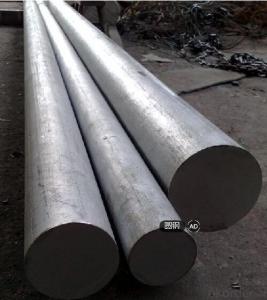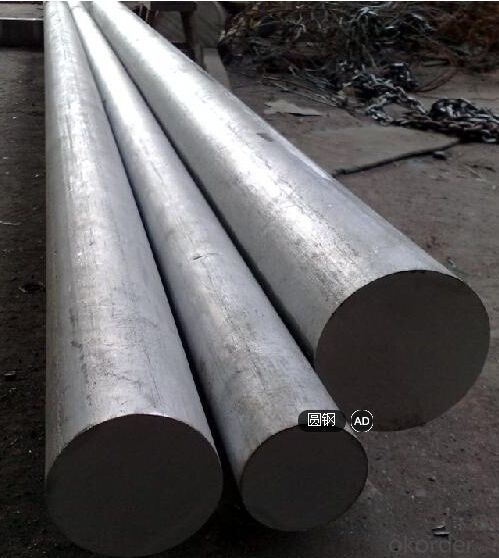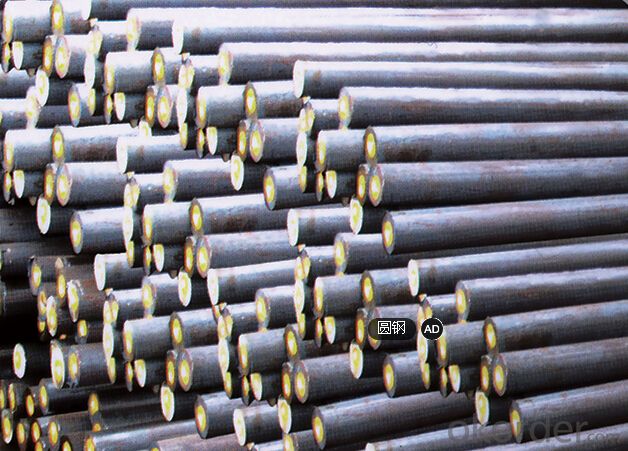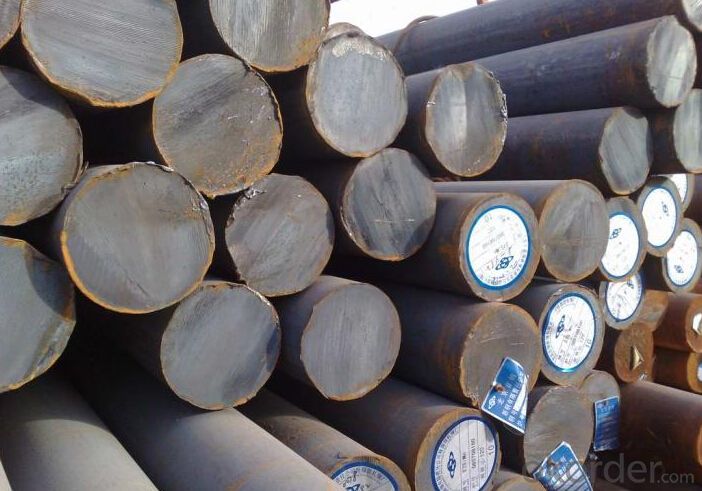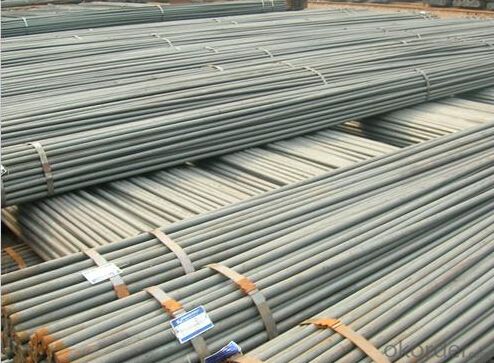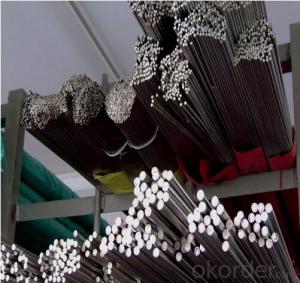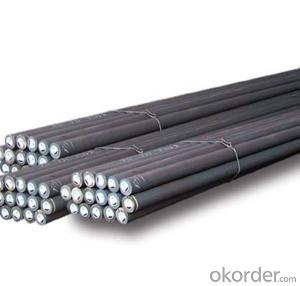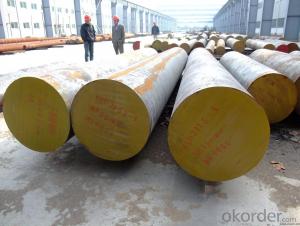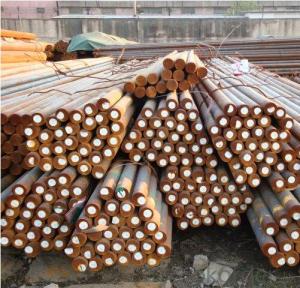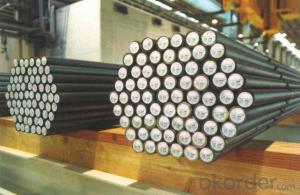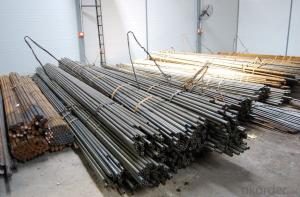SKD11 Die Steel Bar/DIN.1.2379 Steel Round Bar
- Loading Port:
- Qingdao
- Payment Terms:
- TT OR LC
- Min Order Qty:
- 5 m.t.
- Supply Capability:
- 100000 m.t./month
OKorder Service Pledge
Quality Product, Order Online Tracking, Timely Delivery
OKorder Financial Service
Credit Rating, Credit Services, Credit Purchasing
You Might Also Like
Specification
Type:
Carbon Steel,Spring Steel,Bearing Steel,Gear Steel,Deformed Steel,Stainless Steel,Alloy Steel
Shape:
Steel Coil,Steel Sheet,Steel Wire Rod,Steel Flat Bar,Steel Square Bar,Steel Angle,Steel Round Bar,Steel Billets
Technique:
Hot Rolled,Cold Rolled,Cold Drawn,ERW,Forged,Saw,Extruded,EFW,Spring
Surface Treatment:
Galvanized,Coated,Copper Coated,Color Coated,Oiled,Dry,Chromed Passivation,Polished,Bright,Black,PVDF Coated
Certification:
ISO,SGS,BV,IBR,RoHS,CE,API,BSI,UL
Thickness:
10-900MM
Width:
10-900MM
Length:
6-12m
Outer Diameter:
10-900MM
Net Weight:
100kg
Packaging:
seaworthy packaging
SKD11 Die Steel Bar/DIN.1.2379 Steel Round Bar
Detailed Information of SKD11 Die Steel Bar/DIN.1.2379 Steel Round Bar
| Name | Steel Round Bar |
| Shape | Round Bar/Square Bar/Flat Bar/Plate/Wire |
| Standard | GB/ASTM/SAE/AISI/DIN/JIS/EN/BS |
| Surface Treatment: | Black/Peeling/Polished/Machined |
| Delivery Condition: | Hot Rolled or Forged/Peeled or Black Surface |
| Test | SGS/UT 100% Elements Testing |
| Certificate: | ISO/Mill Certificate |
| Service: | 24 hours online service / |
| more than 20 years trading and manufacture | |
| Quality Assurance: | the third party inspection, such as SGS, BV, TUV…etc. is acceptable |
| Packaging Details: | Seaworthy Packaging or as per customer's packing instruction |
Product Overviews of SKD11 Die Steel Bar/DIN.1.2379 Steel Round Bar
| Product Name | Typical Grades | Diameter(mm) | Standard Adopted |
| Carbon Steel | 20 (1020/S20C/C22) | ||
| 40 (1040/S40C/C40) | Ø16-Ø300 | ||
| 45 (1045/S45C/C45) | |||
| Bearing Steel | GCr9 (51100/SUJ1) | ||
| GCr15 (52100/SUJ2/100Gr6) | Ø12-Ø250 | ||
| GCr9SiMn (A485-Gr.1/SUJ3) | GB/SAE/ | ||
| Cr-Mo Steel | 20Cr (5120/SCr420H/20Cr4) | JIS/DIN | |
| 40Cr (5140/SCr440/41Cr4) | Ø12-Ø250 | ||
| 42CrMo(4140/SCM440/42CrMo4) | |||
| Gear Steel | 20CrNiMo | ||
| 20CrMn(5115/SMnC420/20MnCr5) | Ø16-Ø600 | ||
| 20CrNiMo(8620/SNCM220/20CrMiMo2) |
Company Introduction of SKD11 Die Steel Bar/DIN.1.2379 Steel Round Bar
CNBM International Corporation is the most import and export platform of CNBM group(China National Building Material Group Corporation) ,which is a state-owned enterprise, ranked in 270th of Fortune Global 500 in 2015.
With its advantages, CNBM International are mainly concentrate on Cement, Glass, Iron and Steel, Ceramics industries and devotes herself for supplying high quality series of refractories as well as technical consultancies and logistics solution.
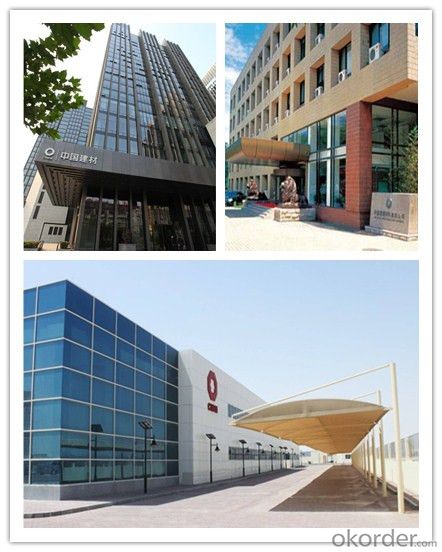
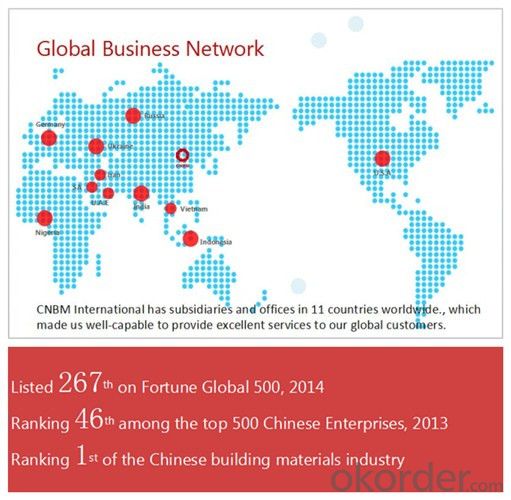
| After-sale service | l CNBM provides the services and support you need for every step of our cooperation. We’re the business partners you can trust; you can relax and get on with doing business. |
| l For any problem, please kindly contact us at any your convenient time, we’ll reply you in our first priority within 24 hours | |
| Advantages | l Industry experience over 20 years. |
| l Shipment of goods -More than 70 countries worldwide. | |
| l The most convenient transport and prompt delivery. | |
| l Competitive price with best service. | |
| l High technical production line with top quality products. | |
| l High reputation based on best quality products. | |
Packaging & Delivery of SKD11 Die Steel Bar/DIN.1.2379 Steel Round Bar
| Packaging Detail | Sea worthy packing /as per customer's packing instruction |
| Delivery Detail | 15 ~ 40 days after receiving the deposit |
Products Show
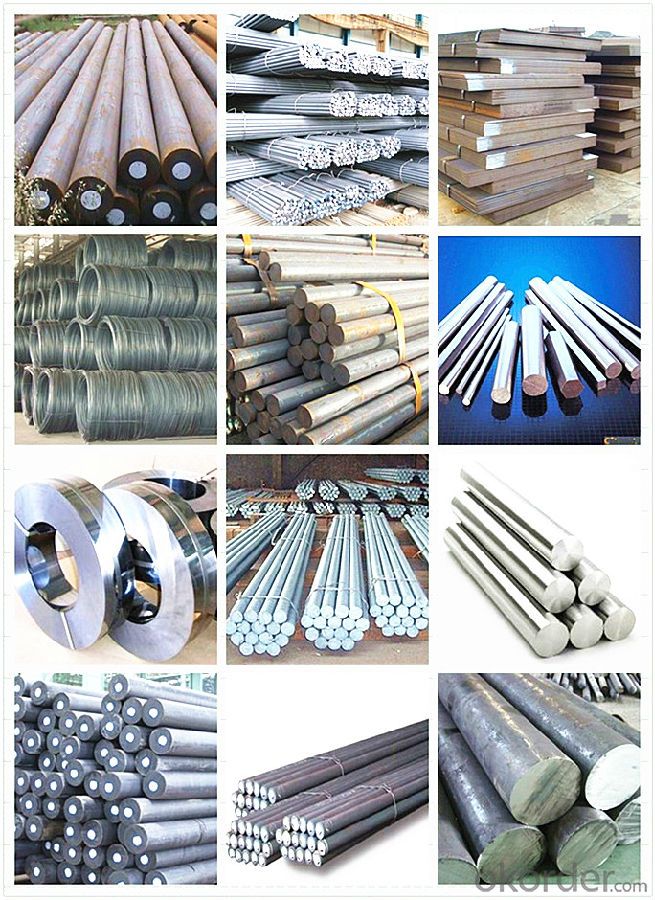
FAQ:
| Are you a trading company or manufacturer? | Manufacturer |
| What’s the MOQ? | 1000m2 |
| What’s your delivery time? | 15-20 days after downpayment received |
| Do you Accept OEM service? | Yes |
| what’s your delivery terms? | FOB/CFR/CIF |
| What's the Payment Terms? | 30% as deposit,70% before shipment by T/T |
| Western Union acceptable for small amount. | |
| L/C acceptable for large amount. | |
| Scrow ,Paybal,Alipay are also ok | |
| Why choose us? | Chose happens because of quality, then price, We can give you both. Additionally, we can also offer professional products inquiry, products knowledge train (for agents), smooth goods delivery, excellent customer solution proposals. |
| What's your available port of Shipment? | Main Port, China |
| What’s your featured services? | Our service formula: good quality+ good price+ good service=customer's trust |
| Where are your Market? | Covering more than 160 countries in the world |
- Q: What are the disadvantages of using special steel?
- One of the main disadvantages of using special steel is its high cost. Special steel is typically more expensive to produce and purchase compared to regular steel. Additionally, the production process for special steel often requires specific techniques and equipment, which can further increase costs. Another disadvantage is the limited availability of special steel. It may not be readily accessible in all regions, leading to longer lead times and potential supply chain issues. Moreover, special steel may have lower formability and machinability compared to regular steel, making it more challenging to work with and shape as needed.
- Q: What is the life cycle of special steel products?
- The life cycle of special steel products typically involves several stages, including raw material extraction, steel production, manufacturing of specialized products, distribution, usage, and eventual disposal or recycling. This cycle starts with the extraction of iron ore and other raw materials, which are then processed and transformed into steel through various methods such as smelting and casting. Once the steel is produced, it is shaped and formed into specialized products through forging, rolling, or machining processes. These products are then distributed to various industries, where they are used for applications such as construction, automotive, aerospace, and energy. Throughout their usage, special steel products may undergo maintenance, repairs, or modifications. Eventually, when they reach the end of their life, these products can be recycled or disposed of in an environmentally responsible manner to minimize waste and resource consumption.
- Q: How is high-temperature alloy steel used in the production of heat exchangers?
- High-temperature alloy steel is used in the production of heat exchangers due to its exceptional heat resistance and strength properties. This type of steel can withstand high temperatures without deforming or losing its mechanical properties, making it ideal for handling hot fluids or gases in heat exchange processes. The alloy's ability to resist corrosion and oxidation further enhances its suitability for this application. Overall, high-temperature alloy steel ensures the durability and efficiency of heat exchangers in various industries such as power generation, chemical processing, and petroleum refining.
- Q: How does special steel contribute to the food processing aftermarket industry?
- Special steel plays a crucial role in the food processing aftermarket industry by providing equipment and components that ensure safety, efficiency, and durability. With its exceptional properties such as corrosion resistance, high strength, and heat resistance, special steel is used to manufacture cutting blades, sieves, conveyors, and other machinery parts. This allows for precise cutting, sieving, and conveying of various food products, maintaining their quality and reducing contamination risks. Overall, special steel enhances the performance and longevity of food processing equipment, enabling the industry to meet stringent hygiene standards and increase productivity.
- Q: Can special steel be used in renewable energy applications?
- Yes, special steel can be used in renewable energy applications. Special steel alloys such as stainless steel and high-strength low-alloy (HSLA) steel are commonly used in the manufacturing of wind turbines, solar panels, and hydroelectric power systems. These alloys offer excellent corrosion resistance, high strength, and durability, making them ideal for withstanding harsh environmental conditions and ensuring long-term performance in renewable energy applications.
- Q: How does special steel contribute to national security?
- National security is significantly enhanced by special steel, which serves various purposes. Firstly, it is extensively utilized in the production of military equipment and weapons. Tanks, armored vehicles, submarines, and aircraft carriers require special steel due to its exceptional strength, resilience, and resistance to corrosion. Incorporating special steel into military applications ensures the durability and reliability of these vital defense systems, ultimately strengthening national security. Secondly, special steel plays a pivotal role in the construction of critical infrastructure. Bridges, tunnels, and buildings, which are essential for a nation's functioning and security, rely on special steel. Its unparalleled strength and ability to withstand extreme conditions make it a crucial material for structures that must endure natural disasters, terrorist attacks, or other security threats. By incorporating special steel into infrastructure projects, a nation can fortify its security and safeguard its citizens. Additionally, special steel is of utmost importance in the energy sector, particularly within nuclear power plants. Special steel alloys are employed in the construction of reactor vessels and other components that encounter high temperatures and pressures. The utilization of special steel ensures the integrity and safety of these critical facilities, mitigating the risk of potential nuclear accidents that could pose significant threats to national security. Lastly, special steel contributes to national security by supporting the defense industry and fostering technological advancements. Research and development in special steel alloys often lead to breakthroughs in material engineering, which can have broader applications beyond defense. These advancements stimulate innovation in sectors such as aerospace, automotive, and energy, thereby augmenting a nation's overall technological capabilities and economic competitiveness. In conclusion, special steel's contribution to national security is multifaceted. Its incorporation in military equipment, critical infrastructure, nuclear power plants, and technological advancements all play a pivotal role in safeguarding a nation's interests, protecting its citizens, and maintaining its strategic advantage in an increasingly turbulent world.
- Q: How does special steel contribute to the aerospace material cost reduction?
- Special steel contributes to the aerospace material cost reduction by offering superior strength, durability, and corrosion resistance properties. This allows for the design and manufacture of lighter and more fuel-efficient aircraft components. Additionally, special steel's high performance characteristics enable longer service life, reducing maintenance and replacement costs over time.
- Q: What are the different non-destructive evaluation techniques used for special steel?
- Some different non-destructive evaluation techniques used for special steel include ultrasonic testing, magnetic particle inspection, dye penetrant inspection, eddy current testing, and radiographic testing. These methods allow for the detection of internal and surface defects in the steel without causing any damage to the material.
- Q: Is special steel recyclable?
- Yes, special steel is recyclable.
- Q: What is the tensile strength of special steel?
- The tensile strength of special steel varies depending on the specific grade and composition, but it is generally higher than that of regular steel and can range from 500 to 2,000 megapascals (MPa).
Send your message to us
SKD11 Die Steel Bar/DIN.1.2379 Steel Round Bar
- Loading Port:
- Qingdao
- Payment Terms:
- TT OR LC
- Min Order Qty:
- 5 m.t.
- Supply Capability:
- 100000 m.t./month
OKorder Service Pledge
Quality Product, Order Online Tracking, Timely Delivery
OKorder Financial Service
Credit Rating, Credit Services, Credit Purchasing
Similar products
Hot products
Hot Searches
Related keywords
